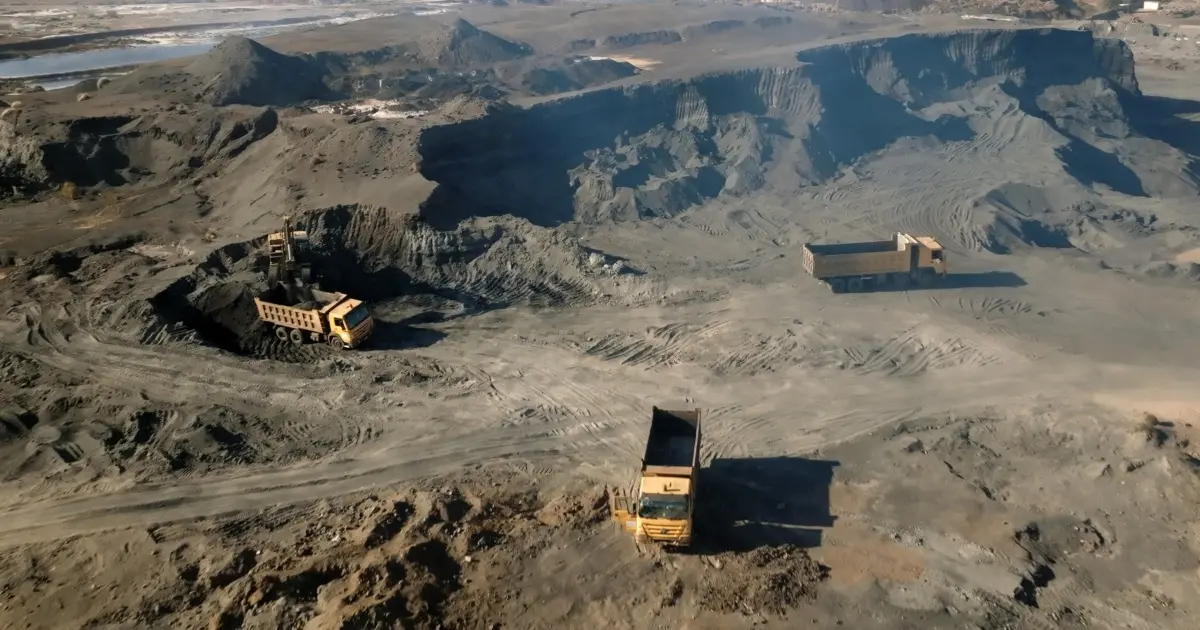Chinese mining companies in Zambia blamed for environmental, health and labour exploitation problems
A river in Zambia ceased to exist overnight thanks to the release of acidic waste from a Chinese-operated copper mine, which caused huge environmental damage. The recent incident has brought the problem of negligence and exploitation by Chinese mining companies to the limelight. They have been blamed for environmental destruction, poor labour working conditions and dues, and disregard for local culture.
About 50 million litres of waste containing concentrated acid, dissolved solids and heavy metals released from a copper mine polluted the stream joining the Kafue River. While it posed serious threats to people and wildlife along the river, dead fish were found 100 km downstream. Sean Cornelius who lived near the river said the river was vibrant and alive earlier but now fish died and birds disappeared from the area. “Now everything is dead, it’s like a totally dead river. Unbelievable. Overnight, this river died,” he said.
The copper mine is run by Sino-Metals Leach Zambia, which is majority-owned by the state-run China Nonferrous Metals Industry Group. Kafue is widely used for irrigation, fishing and industrial purposes as about 60 percent of the Zambian population depends on the river. The contaminated acidic water led to crop damage and the cutting off of the tap water supply thanks to the bioaccumulation of toxins in the food chain. Environment activist Chilekwa Mumba said “It is an environmental disaster really of catastrophic consequences.”
Notably, it is not the first time a Chinese company-operated mine has been accused of causing environmental damage in Zambia. In 2007, Chiman Manufacturing was forced to halt manganese mining by the Zambian government for polluting air that posed risks to the health of people in Lusaka town. “We issued a closure notice on Friday for non-compliance with the environmental concerns we raised after inspecting the mine in March,” said Justin Mukosa, the then spokesman of the Environmental Council of Zambia.
There are three Chinese mining companies in Zambia currently, which are accused of polluting the Kafue River. The latest incident by the Sino-Metals has been severe as 50 million litres of acidic, toxic water was released into the river. Farms were destroyed, cattle died and worsened the plight of vulnerable farmers. The reckless mining practice by Chinese mining companies which prioritise profits over safety and the environment has caused catastrophe. “Residents are witnessing their livelihoods being washed away with the toxic water, and yet those responsible continue to operate with impunity,” said Raymond Mutale, acting executive director of Transparency International Zambia.
Zambia has vast reserves of copper, lead, zinc, uranium, coal, and gemstones, which drew Chinese attention, followed by heavy investments in mining, hydropower, roads, and smelters. However, Chinese companies have often been blamed for severe water and air pollution besides destroying wildlife habitats and local livelihoods. In 2013, complaints were filed to the Zambia Environmental Management Agency (ZEMA) against Chinese companies, Nonferrous China Africa (NFCA) and Chambishi Copper Smelter (CCS).
In 2005, 50 Zambian workers were killed in a blast at the Chinese company CCS-run copper mine. Former Zambian President Micheal Sata blamed the Chinese for their deceitful acts. He said the Chinese had no regard for the Zambian people, or their culture even though they spoke sweetly before starting mining in Zambia. He blamed them for exposing Zambian workers to dangerous working conditions and implementing dubious Chinese labour practices. “Today, the Chinese are not here as investors, they are here as invaders,” he said.
In 2010, the Chinese staff shot at protesting Zambian workers at Collum Coal Mine, leaving 11 wounded. Robert Mundike, a miner, said “It was a very tough experience. We don’t trust the Chinese anymore: if they could shoot us once, they could shoot us again.” The violation of human rights and labour rights caused tensions between the Zambians and Chinese working in the country. Zambians were agitated after the Chinese staff responsible for shooting and harassment were allowed to go Scot-free.
Human Rights Watch (HRW) also raised questions over the exploitation of Zambian workers working in Chinese-run mines and their deteriorating health conditions. “China’s state-owned enterprises in Zambia’s copper mines appear to be exporting abuses along with investment, with some issues in Zambia strikingly similar to safety and labour problems,” it said. “Miners at several Chinese-run companies spoke of poor health and safety standards, including poor ventilation that can lead to serious lung diseases.”













